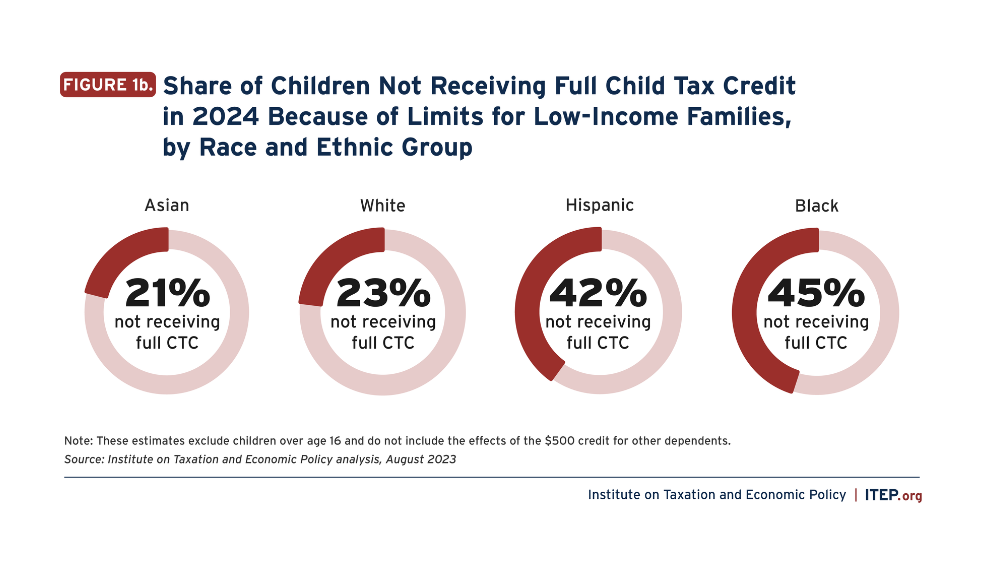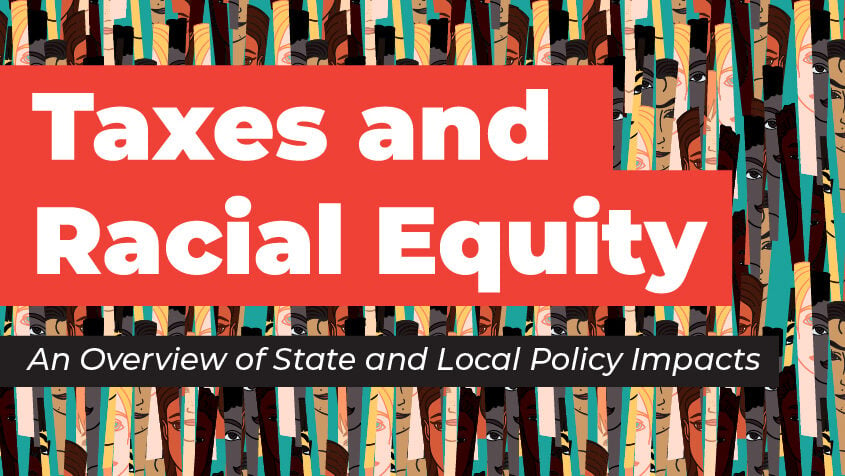
Racial Equity
Tax justice is critical to racial justice and ITEP is proud to bring our in-depth analysis and strategic insight to this work. Tax codes may not explicitly be race-based, but decisions about who and what is taxed, and at what levels, have racialized impacts. The history of race-based injustices is long and its impact on wealth and well-being today is profound. While tax policy alone cannot reverse centuries of systemic racial oppression, building fair and adequate tax codes is essential to addressing longstanding inadequacies in public services and forging a path towards a more equitable future.
Revenue raised through taxes is vital to funding public investments in education, health, unemployment insurance, child care, and the safety net that could help dismantle structural barriers to opportunity for Black and brown people and communities. But our tax code often favors sources of income that have been largely restricted to white families for much of history – for example, by taxing income from inheritances, capital gains, dividends, and corporate profits at lower rates than income from labor. Meanwhile, raising revenue by taxing consumption asks far more from low- and middle-income families, a disproportionate share of which are families of color.
These systems can widen the racial wealth divide and concentrate wealth among a minority of primarily white, non-Hispanic families. And forgoing taxes on those with the greatest ability to pay makes it harder to invest in our communities and drive prosperity.
Acknowledging the disparate impact tax policies have based on race is crucial to building equitable and sustainable tax systems, but the IRS does not collect data on taxpayer race or ethnicity. That’s why ITEP enriched our one-of-a-kind microsimulation model with carefully developed methodology to incorporate race data. We can now show that many tax changes affect racial and ethnic equity at the federal, state, and local level. ITEP commits to continuously improve our capacity to disaggregate tax data by race and ethnicity and acknowledge the disparate impacts of tax policy in all our work – internal and external – with the vision of creating a more equitable and just tax system that ensures all people can live and work with dignity in the wealthiest nation in the world.
Filter Racial Equity Research
Research Category
Featured Research






